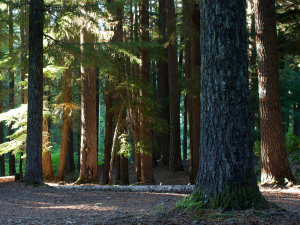Editorial: New Treeland?
OPINION: Forestry is not all bad and planting pine trees on land that is prone to erosion or in soils which cannot support livestock farming makes sense.
 The move to cease Level 4 on Tuesday April 28, means most parts of the forest supply chain can start moving again.
The move to cease Level 4 on Tuesday April 28, means most parts of the forest supply chain can start moving again.
The Forest Owners Association (FOA) says its members and the supply chain are gearing up to meet the challenge of getting back to work on Tuesday 28 April.
Its members will be working within the health and safety provisions of Alert Level 3.
The forest industry was deemed to be a non-essential industry, when the Government imposed the Level 4 lockdown on 26 March.
The move to cease Level 4 on Tuesday April 28, means most parts of the forest supply chain can start moving again. These include forestry management – including aerial spraying, weed and pest management, nursery operations, planting, and seed collection. It also means log harvesting, haulage, log sales and wood products processing can all start again.
FOA President, Phil Taylor, says his organisation supported the Level 4 restrictions, but now is the time to get back to work.
“Right from the outset we have been focussed on the safety of our workforce. Since then, there has been a collaborative process to develop protocols for operations right through the supply chain.”
Taylor says the New Zealand timber processing industry has had a whole month of virtually no production, which it needs to catch up on. He says some processers have already started producing for essential industries, such as making pallets for fruit exporters.
Taylor adds that forest owners are just as eager to get exporting back to normal as well.
Additional tariffs introduced by the Chinese Government last month on beef imports should favour New Zealand farmers and exporters.
Primary sector leaders have praised the government and its officials for putting the Indian free trade deal together in just nine months.
Primary sector leaders have welcomed the announcement of a Free Trade Agreement (FTA) between India and New Zealand.
Dairy farmers are still in a good place despite volatile global milk prices.
Legal controls on the movement of fruits and vegetables are now in place in Auckland’s Mt Roskill suburb, says Biosecurity New Zealand Commissioner North Mike Inglis.
Arable growers worried that some weeds in their crops may have developed herbicide resistance can now get the suspected plants tested for free.